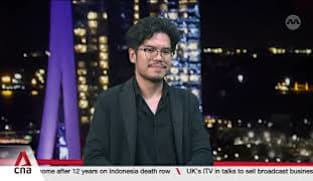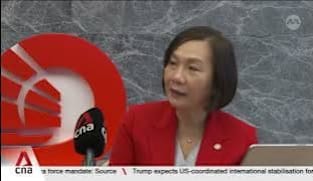Alvin Tan on Economic Expansion Incentives (Relief from Income Tax) (Amendment) Bill
A Bill was moved for second reading in Parliament on Monday (Nov 11) to implement several tax incentive changes that were introduced in Budget 2024. First, it introduces an additional concessionary tax rate tier of 15 per cent for the Development and Expansion Incentive (DEI) scheme, which is meant to encourage companies to grow their capabilities and conduct new or expanded activities in Singapore. Minister of State for Trade and Industry Alvin Tan said Singapore periodically reviews its tax incentives to ensure they remain relevant to companies with different circumstances. As an example, he said a company affected by the new global minimum effective tax rate of 15 per cent might find the new tax rate tier “sufficient for its needs”. The Bill also expands the scope of companies eligible for a DEI award tenure of up to 40 years to include non-headquarter service companies. Mr Tan said this will give Singapore’s economic agencies flexibility to support deserving companies, such as those that provide payment technologies, AI solutions or aircraft maintenance, repair and overhaul services. Finally, the Bill expands the scope of companies eligible for the award tenure of up to 40 years and extends this sub-scheme until the end of 2028. This, said Mr Tan, will give the Government more flexibility to respond to the fast-changing economic landscape.
A Bill was moved for second reading in Parliament on Monday (Nov 11) to implement several tax incentive changes that were introduced in Budget 2024. First, it introduces an additional concessionary tax rate tier of 15 per cent for the Development and Expansion Incentive (DEI) scheme, which is meant to encourage companies to grow their capabilities and conduct new or expanded activities in Singapore. Minister of State for Trade and Industry Alvin Tan said Singapore periodically reviews its tax incentives to ensure they remain relevant to companies with different circumstances. As an example, he said a company affected by the new global minimum effective tax rate of 15 per cent might find the new tax rate tier “sufficient for its needs”. The Bill also expands the scope of companies eligible for a DEI award tenure of up to 40 years to include non-headquarter service companies. Mr Tan said this will give Singapore’s economic agencies flexibility to support deserving companies, such as those that provide payment technologies, AI solutions or aircraft maintenance, repair and overhaul services. Finally, the Bill expands the scope of companies eligible for the award tenure of up to 40 years and extends this sub-scheme until the end of 2028. This, said Mr Tan, will give the Government more flexibility to respond to the fast-changing economic landscape.



















